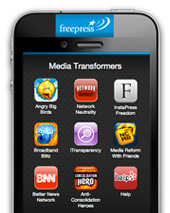|
News of the movement for December 17, 2012 |
|
The International Telecom Union, the little-known but influential United Nations agency that oversees phone, radio and satellite communications, last week stopped short of fragmenting the Internet into national fiefdoms, as some had feared it would do through a new global treaty. Instead, the draft that delegates approved barely mentions the Internet. The result wasn't exactly a victory for those who are committed to a free and open Internet, however.
The tech industry and its press have treated the rise of billion-scale social networks and ubiquitous smartphone apps as an unadulterated win for regular people, a triumph of usability and empowerment. They seldom talk about what we've lost along the way in this transition, and I find that younger folks may not even know how the Web used to be. So here's a few glimpses of a Web that's mostly faded away. End Is Near for Surveillance Law Powers
The Senate is racing toward a last-minute showdown over a controversial counterterrorism surveillance law. While the chamber is preoccupied with the fast-approaching fiscal cliff, the clock is also running out on the so-called FISA Amendments Act -- provisions of which are scheduled to sunset at the end of the year.
Capping the Nation's Broadband Future
A growing number of Americans is being forced to cap the amount of data they use, both on their cellphones and even at home, or face expensive overage charges. A new report from the New America Foundation’s Open Technology Institute found these increasingly costly and restrictive data caps are serving little purpose other than to raise the already high profit margins of broadband providers. Let's Take the Internet Back from the ISPs
The next great American infrastructure investment should be fiber to the home. Why You Should Expect More Online Outages but Less Downtime
Gmail went down for 18 minutes during prime email checking hours on the West Coast thanks to a routine software update. But in an era of continuous code deployment, Google’s mid-morning update isn’t unusual: It’s the future.
Inmates and Families Pay Price of Costly Calls
A petition by inmates' families asks the FCC to lower prison phone rates. Would more phone calls have a positive effect on rehabilitation? FCC Establishes Fund to Support Broadband Access for Hospitals
The FCC voted to permanently establish its Healthcare Connect Fund, which will provide up to $400 million annually to support broadband access nationwide, particularly for rural health-care providers.
It’s Not Twitter -- This Is Just the Way the News Works Now
The way that inaccurate news reports about a mass shooting in Connecticut filtered out through social media has brought up many of the same criticisms after Hurricane Sandy -- that social media isn’t an appropriate forum for journalism. But this is simply the way the news works now. A Look at Newspapers Turning a Profit -- Yes, There Are Some -- and Those That Are Not
Speculation surged last week that Michael Bloomberg, New York's billionaire mayor and founder of Bloomberg LP, might buy the Financial Times, after the New York Times reported he'd been thinking about it. The paper's not for sale, but the report begged a related question: Should smart businesspeople be buying newspapers in 2013? No Excuses: It’s Your Job to Steer Clear of the Mob
The media made a terrible error in identifying Ryan Lanza as the Sandy Hook shooter — a mistake amplified by social media. But while we may not be able to prevent these blunders happening elsewhere, we have to take responsibility for our own actions.
|
What if there was a gadget that could fix everything that’s wrong with the media? At Free Press we have a people-powered machine that fights to change the media and build a better democracy. We can’t do this work without your support.
|

